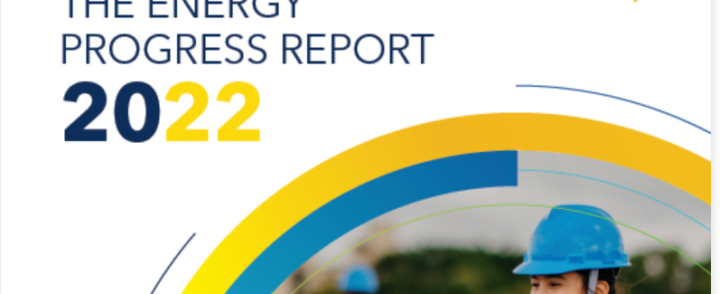Tracking SDG 7: The Energy Progress Report (2022)
This joint annual report from the custodian agencies of Sustainable Development Goal (SDG) 7 on energy, serves to guide international co-operation and policy making to achieve universal, sustainable energy access by 2030.
The annual SDG 7 tracking report includes the official dashboard of global, regional and national progress on four key energy targets:
- 7.1: Ensuring universal access to electricity and clean cooking solutions;
- 7.2: Substantially increasing the share of renewable energy;
- 7.3: Doubling progress on energy efficiency;
- 7.A: Increasing international collaboration in support of clean and renewable energy.
The latest available data and selected energy scenarios reveal that at today’s rate of progress, the world is not on track to achieve any of the targets under SDG 7. This is particularly true of the most vulnerable countries and those that were already lagging.
Globally, 91% of the population had access to electricity in 2020, leaving 733 million people unserved. Despite progress over the last decade, the pace of progress has been decreasing due to the complexity of reaching the remaining unserved populations and the impacts of COVID-19. With population growth outpacing improvements on access to clean cooking, some 2.4 billion people – one-third of the world population – still lacked access in 2020. Based on current trends, an estimated 670 million people will remain without access to electricity by 2030 and 2.1 billion people will be left with no access to clean cooking, unless global efforts are enhanced.
Although the pandemic stalled many energy projects in 2020, the use of renewables continued to grow, accounting for more than 80% of all new electricity capacity added that year. At the same time, the report finds that between 2010 and 2019, the share of renewables in TFEC grew by only 2.7 percentage points. This modest pace highlights the importance of continued action, including a focus on curbing energy consumption through energy efficiency and energy conservation efforts.
Accelerating progress towards the achievement of SDG 7 requires mobilising significantly more resources, particularly for those countries currently being left furthest behind. Yet, the report shows that international public financial flows to developing countries in support of clean energy decreased in 2019 for the second year in a row, falling to USD 10.9 billion. Flows remain heavily concentrated geographically, with 24 countries having received 80% of all commitments.
Source: IRENA



